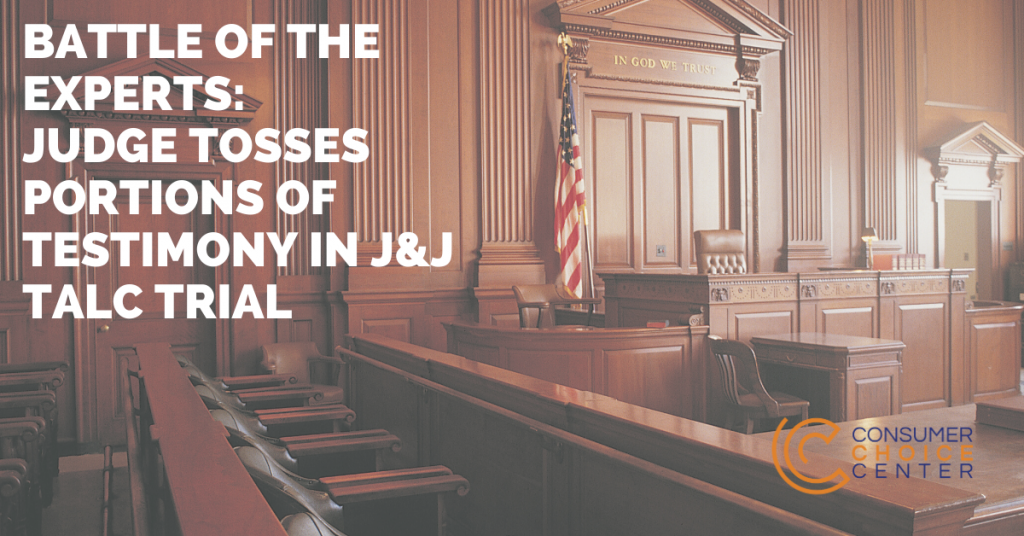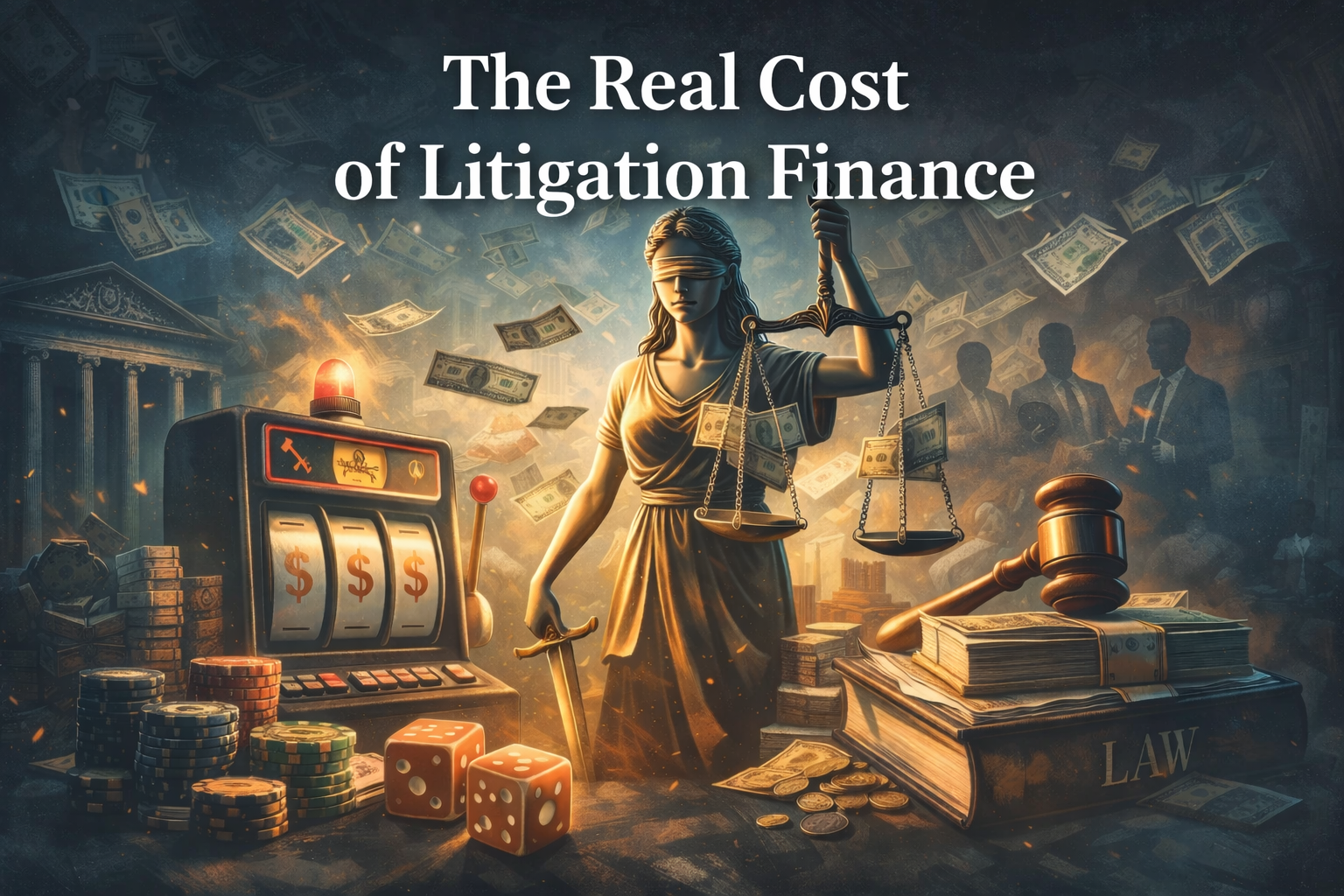
For the last year, we’ve dedicated a good amount of space in our campaigns advocating for significant reform when it comes to both the U.S. tort law system and the science that is used in courts.
With most courts closed due to COVID-19, that afforded us an opportunity to better dive into one case that’s grabbing headlines: one of the many talc lawsuits against Johnson & Johnson, which we’ve written about before.
Plaintiffs in multiple lawsuits claim their baby powder products contained elements of asbestos in the talc, the main ingredient in hundreds of cosmetic products, food additives, and lubricants, and therefore can cause cancer.
Because these lawsuits have been inundated with scientific testimony from all sides, a judge in a Federal District Court in New Jersey held a Daubert hearing, examining the methodologies and credibility of the science presented in the case.
For those interested in countering junk science in the courts, this is a big one.
The Daubert opinion, written by Chief Judge Freda Wolfson, sheds a lot of light on the process of determining whether certain expert analysis can be entered as evidence for juries to consider.
In this specific case in New Jersey, all experts from the plaintiff-side who had part of their testimonies thrown out because their methodologies were questionable or they made claims they couldn’t back up. All defense witnesses will be heard without reservations.
Overall, there’s a lot of “Battle of the Experts” here, and it makes for fascinating reading.
There was a lot of debate about the strength of weakness of “epidemiological studies” – tell me if you’ve heard about those recently – and about whether expert witnesses were basing their testimonies on “subjective belief or unsupported speculation”.
Specifically, one of the main witnesses says talcum powder causes inflammation in certain cells, and then uses that to claim it’s carcinogenic. Chief Judge Wolfson torches him for his claim without causation.
“For all these reasons, the Court finds that Dr. Saed’s opinion that talc causes ovarian cancer is unsupported by the findings of his study—which can only arguably demonstrate that use of talcum powder causes inflammation in ovarian cells.”
Chief Judge Freda Wolfson, Daubert opinion, pg. 24
Second, because there was no transformation of the cell under experimentation, which is usually how we can prove a link to cancer, the judge called his conclusions “unreliable”.
What is more, Dr. Saed’s findings with respect to CA-125 further demonstrate that his opinion with respect to ovarian cancer causation is unreliable.
Chief Judge Freda Wolfson, Daubert opinion, pg. 56
The second main expert witness gets knocked down for producing scientific experiments that can in no way be replicated. The judge points out that each additional attempt at replication came up with a negative for asbestos, which is claimed to be the carcinogen in focus.
“Without that information, which is internally created by MAS, reproducing Dr. Longo’s test under the PLM would not be possible, and hence, the testing is unreliable…J-3’s PLM analysis was negative for asbestos for each sample.”
Chief Judge Freda Wolfson, Daubert opinion, pg. 23
It’s obviously very difficult for courts to examine and establish good science from bad science.
That’s why Daubert hearings are supposed to weigh methodologies, like disproven bite-mark analysis or tire tracks (as many Netflix series are now exposing).
A lot of junk science is taken as fact because it’s in the courtroom, and that’s wrong. That’s exactly what was explained to us last week on Consumer Choice Radio by Jerry Buting, the famed attorney of Steven Avery from the series Making a Murderer.
Exclusive interview with @JButing, criminal defense attorney best known as Steven Avery's attorney from the #Netflix hit series @MakingaMurderer, author of Illusion of Justice: Inside Making a Murderer and America’s Broken System.#LegalReform
— Consumer Choice Center (@ConsumerChoiceC) April 28, 2020
Listen to the full interview here:
What we know is that science is a powerful tool to use in lawsuits that affect millions of consumers or innocent people’s lives, but it can be flawed and have bad consequences.
For that reason, we need good legal reform in each state’s tort system to ensure we can uphold good scientific evidence. Justice depends on it.
A full embed of the Daubert opinion can be found here:




